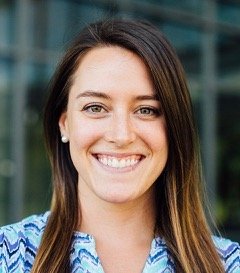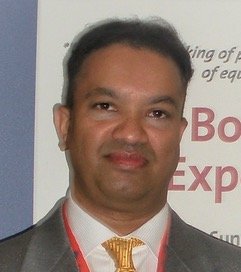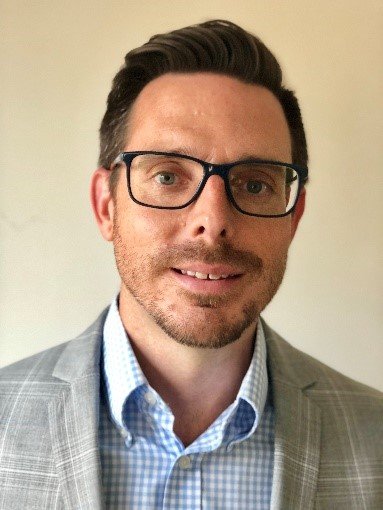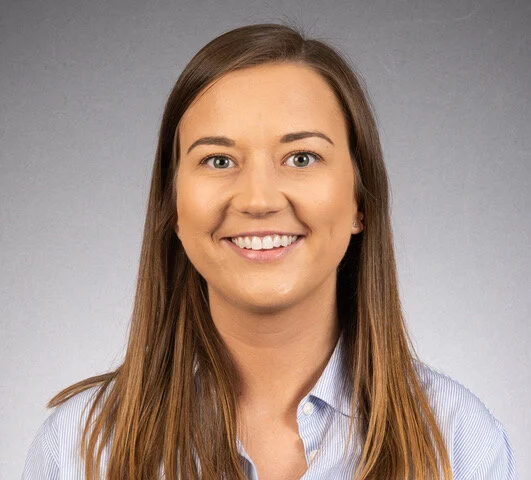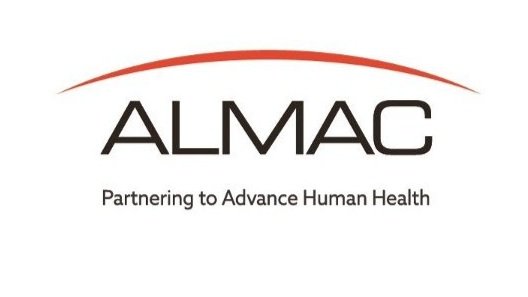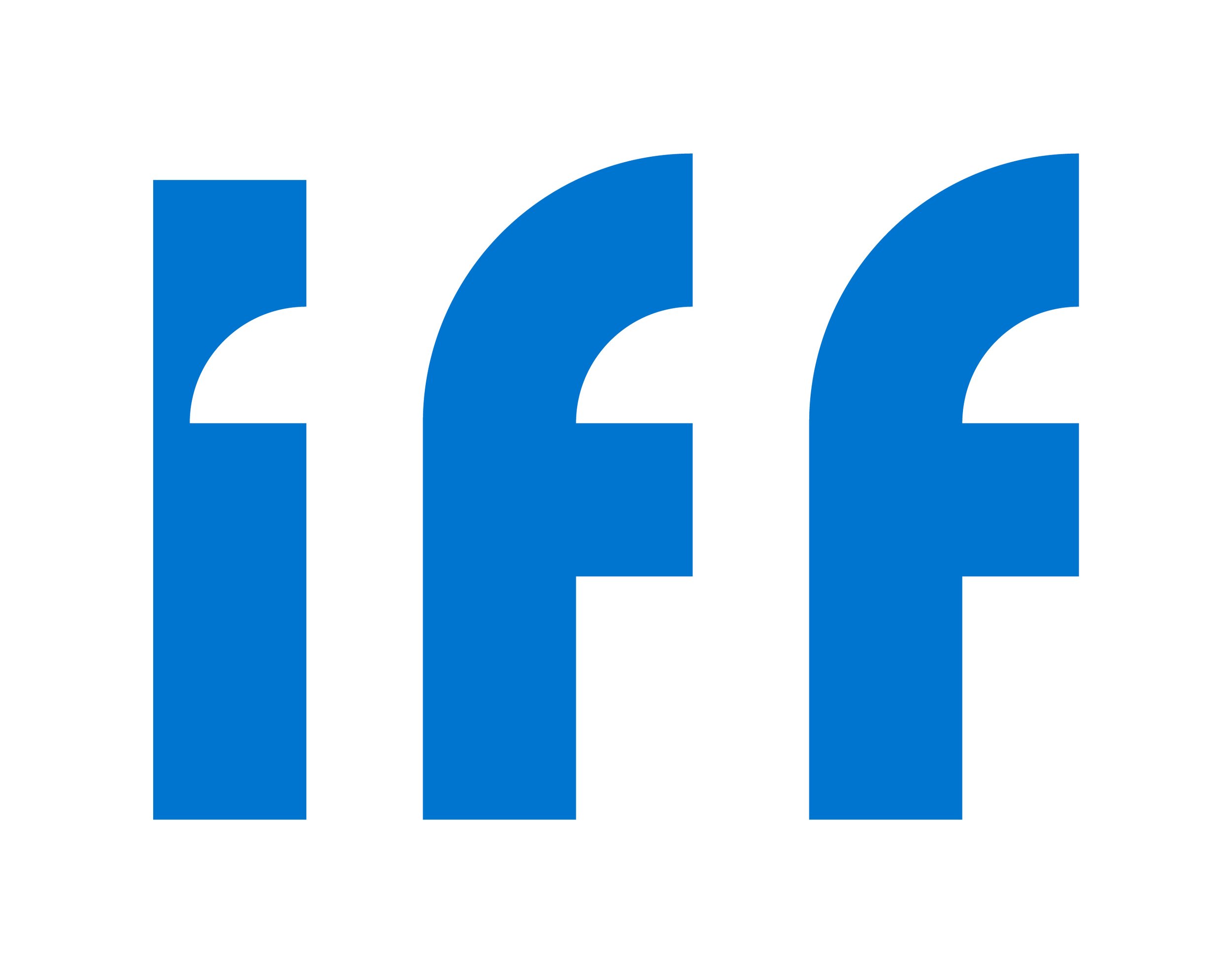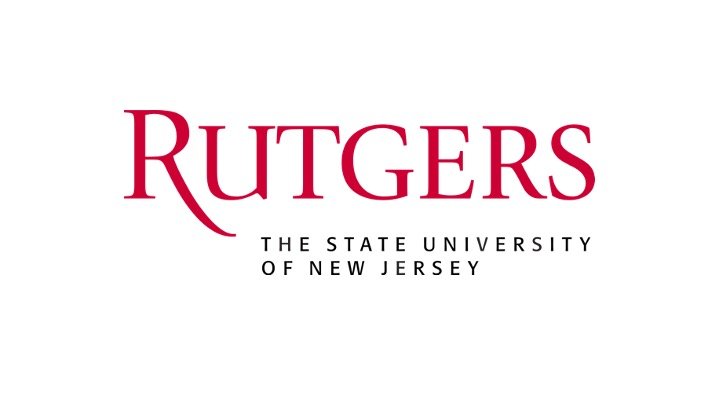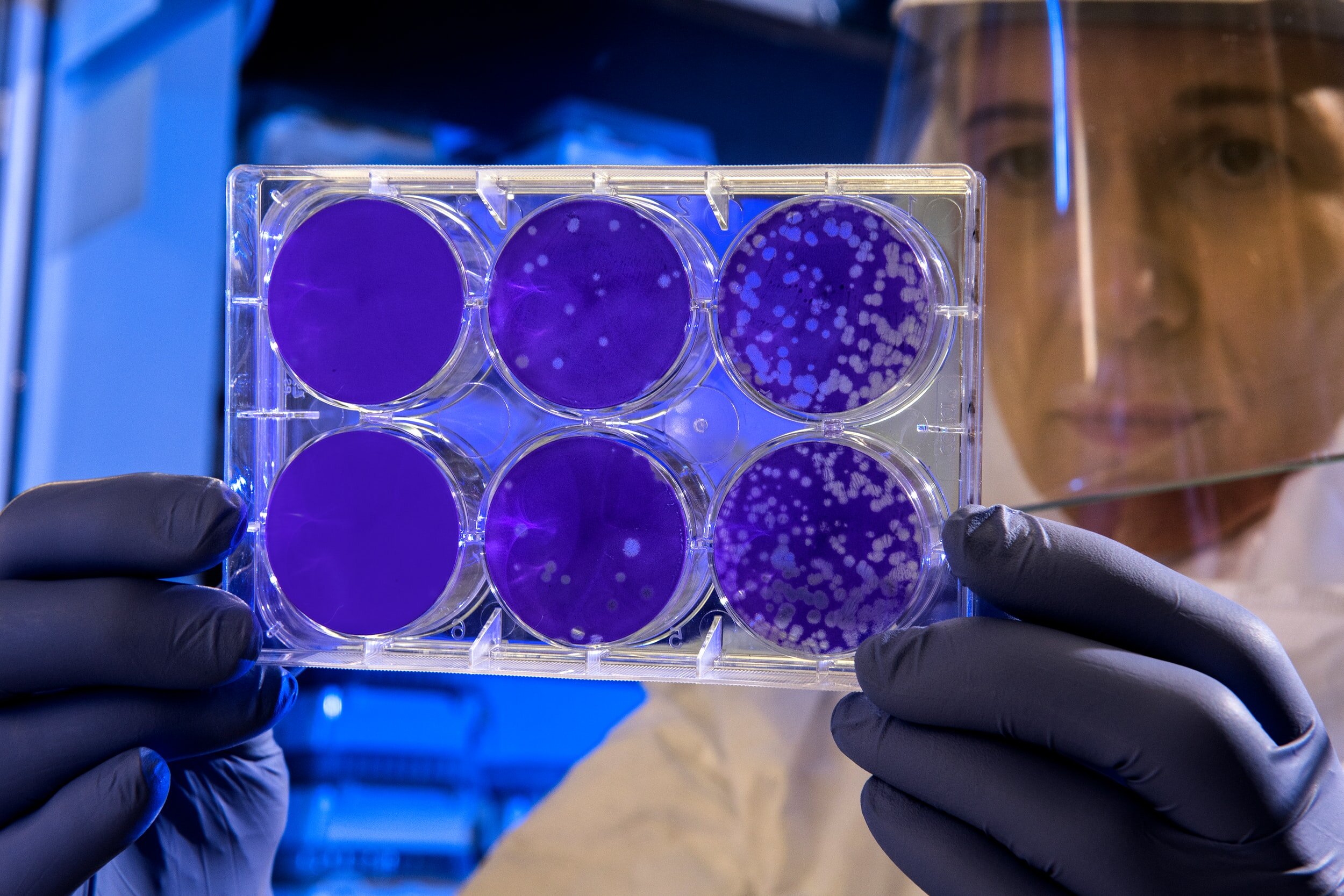
Upcoming events.
Synthesis on Scale; Process Chemistry in the Pharmaceutical Industry
Synthesis at scale
PACS Fall Organic Chemistry Symposium
Speakers include Vy Dong (UC-Irvine), Tim Cernak (University of Michigan.), Daniel Nomura (UC-Berkley), and Scott Denmark (University of Illinois Urbana-Champaign.)
September 13 Meeting
Lead Scientist, R&D, International Flavors and Fragrances, Inc. spoke on “Flavor Emulsion Fabricated with Lysolecithin for Clear Beverages”
June 13 PACS Meeting
Professor Andrew Bocarsly, Department of Chemistry, Princeton University spoke on “An Insulator, a Dirty Carbon Surface, and the Electrocatalytic Formation of True Organics from CO2: Not a Textbook Synthesis.
PACS June 7 Meeting
Professor Andrew Bocarsly
Department of Chemistry, Princeton University
“An Insulator, a Dirty Carbon Surface, and the Electrocatalytic Formation of True Organics from CO2: Not a Textbook Synthesis”
Frick Chemistry Laboratory, Taylor Auditorium, Princeton University
PACS
In-Person Meeting of the Princeton ACS Section
Wednesday, May 10, 2023
Rashanique Quarels, PhD
Rowan University, Department of Chemistry and Biochemistry
“New Approach to Synthesis of the Vancomycin
Linear Heptapeptide”
Frick Chemistry Laboratory, Princeton University
Mixer 7:00 pm; Lecture 7:30 pm
Abstract: Antibiotic resistance is a major public health concern. Antibiotics are extremely effective in eradicating infectious diseases that until the 1930s had proven to be lethal. However, the occurrence of drug-resistant, disease-causing bacteria has become more acute over the past six decades. A growing number of bacterial infections have become harder to treat, with first-line antibiotics leading to longer hospital stays and necessitating the use of secondary and tertiary antibiotics. This has led to an increased resistance to last-resort antibiotics (i.e., vancomycin, carbapenem, and colistin). The immense need for effective antibiotics can be addressed by developing new therapeutic agents or modifying existing ones. Modifications of vancomycin-class antibiotics have created innovation in therapeutic development but require unsustainable synthetic effort. The strategy presented combines umpolung amide synthesis to avoid epimerization of necessary aryl glycine stereocenters and traditional amide. These conditions are highly desirable and can innovate therapeutic design of glycopeptides and related derivatives.
Biography: Professor Quarrels received her PhD in Chemistry from Louisiana State University in 2017, and held a postdoctoral position at Vanderbilt University 2017-2020. Her research program at Rowan focuses on the development of new synthetic methodologies and the synthesis of biologically relevant natural products and derivatives as potential therapeutics. An area of interest is the development of unnatural glycopeptides with antimicrobial activity. She is also studying the composition of natural and unnatural amino acids in linear peptide precursors to antibiotics. Another area of intense focus is on studying the effects of fluorination on morphine derivatives. The aim is to improve drug efficacy while potentially reducing dependence
Her most recent honors and awards include the Chancellor’s Academic Pathways Postdoctoral Fellowship, Vanderbilt University, 2017-2020; Penn Provost’s Postdoctoral Fellowship for Academic Diversity, University of Pennsylvania, 2017 (declined) and the NSF LS-AMP Bridge to the Doctorate Fellowship, Louisiana State University, 2012-2014.
Parking: Parking for Frick Chemistry Building is now in the new Stadium Parking Garage off Faculty Road. Parking is free, but visitors must follow directions to register their license plates at one of the stations in the garage. (Charging stations for EVs are available for a fee.) For additional information about parking and visiting campus, see http://www.princeton.edu/main/visiting/.
Registration: Attendance is free but registration is required. To register, please complete the form below. Note: Confirmation of your registration will appear on this screen once registration is complete.
PACS April 13 Meeting
“Biotransformation and Toxicology of Naturally Occurring and Anthropogenic Polybrominated Diphenyl Ether Derivatives”
Margaret O. James, PhD, DSc
Professor Emeritus of Medicinal Chemistry at the University of Florida College of Pharmacy.

Meeting of the Princeton & Trenton ACS Sections
“Driving and Deriving Molecular Energetics across the Periodic Table “
Angela K. Wilson
John A. Hannah Distinguished Professor of Chemistry Michigan State University and 2022 President, 2023 Past-President of the American Chemical Society (ACS)
2023 Synthesis on Scale: Process Chemistry in the Pharmaceutical Industry
Synthesis on Scale:
Process Chemistry in the Pharmaceutical Industry
PACS December 21 Meeting
Virtual Princeton ACS Section Meeting
Wednesday, December 21, 2022
GoToMeeting
6:00 PM – 7:30 PM
"To Think Anew, An Autodidact's Discourse on the Actinide Element Plutonium”
David Jones, VP of Business Development, Sannova Analytical LLC
Biography: David Jones is currently Vice President of Business Development at Sannova Analytical LLC, a contract research organization (CRO). He advises sponsors on choosing appropriate analytical approaches to support developmental efforts for both small molecule and large molecule programs for the treatment of human disease.
After completing his education at SUNY Stony Brook, he worked on the production of original ligand binding assays, radioimmunoassay, (RIA) for Diagnostic Products, now part of Siemens. He then moved to the technology development company, Bioresearch, where he worked on the synthesis of a series urethane protected N-carboxyanhydrides, (UNCAs) novel reagents for fast, clean peptide synthesis. He has since worked for a variety of companies in roles ranging from chemical synthesis, to laboratory management and business development. These included Immunopharmaceutics, now part of Pfizer, SNPE/Isochem, a French fine chemical company, CRO Frontage Labs, Primera, and finally, for the last eight years, Sannova Analytical. His non-professional interests include environmental chemistry
Abstract: In December of 1862, Abraham Lincoln, one of history’s greatest autodidacts, sent a message to Congress just as he was about to formally change the direction of the American Civil War to confront a then widely held, yet criminally absurd, belief. The belief in question was the popular opinion, North and South, that it was acceptable to treat a group of magnificent human beings little better, and sometimes worse, than farm animals. While overall, the message to Congress was largely a dry technical document hardly as eloquent as other Lincolnian rhetoric, much of the language in the soaring final two paragraphs might well speak to any time.
In this talk, I will appropriate, (or misappropriate and scramble) excerpts from these two paragraphs from the 1862 message, taking them completely out of context to address some widely held beliefs about the 94th element in the Periodic Table, the synthetic (or not so synthetic) element plutonium. I will attempt to briefly review how the history of the element played into the reasons that the element is negatively viewed by the general public today, touch upon some aspects of plutonium chemistry including its large-scale industrial processing, consider how its unique phase diagrams dictate its use and possible use while offering a path to preventing abuse, and finally, discuss its nuclear properties, to make the argument, surely controversial, that access to the element may prove to be “the last best hope of earth.”
Registration: Registration is free but required. Prior to the meeting, all who have registered will receive information on how to join the virtual platform. To register, please complete the form below. Note: Confirmation of your registration will appear on the screen.
PACS September 28 Meeting
Meeting of the Princeton ACS Section
Wednesday, September 28, 2022
6:00 PM – 8:00 PM
at the
Princeton Public Library
“Where were Women in Chemistry in the 1600s?”
Michelle DiMeo, Science History Institute
Biography: Michelle DiMeo is Vice President of Collections and Programs at the Science History Institute in Philadelphia, where she oversees the library and museum. She is an historian of early modern science and medicine and the author of Lady Ranelagh: The Incomparable Life of Robert Boyle’s Sister(University of Chicago Press, 2021). Dr. DiMeo has taught at the University of Pennsylvania, the Georgia Institute of Technology, Lehigh University, and the University of Warwick, where she received her PhD in History and English.
Abstract: “Where were Women in Chemistry in the 1600s?” The answer might not be what you think! While previous historical accounts purported that women were excluded from practicing early science due to limited educational opportunities and an inability to participate in professional institutions, recent research suggests that there were more opportunities for women than we previously realized. This talk will give an overview of women’s scientific practices across the seventeenth century – a supposed turning point for when chemistry became modernized and women were excluded from the field. By contrasting the remarkable lives of two prolific women scientists of the 17th century - Lady Margaret Cavendish and Lady Katherine Ranelagh – this talk will reveal two opposing pathways for women who worked with the Founding Fellows of the Royal Society. Based on these two women’s biographies, Dr. DiMeo will offer a reflection on how early modern social conventions have made it challenging for historians today to find evidence of and to recreate these women’s untold stories.
Reservations: The meeting will take place at the Princeton Public Library, Princeton Public Library, 65 Witherspoon Street, Princeton, NJ 08542. Library parking is available in the Spring Street Garage located adjacent to the library. Drivers may enter the lot from Spring Street or through the library access driveway (Sylvia Beach Way) off Wiggins Street. Take a paper ticket when entering. Library cardholders may have their tickets validated for up to 2 hours of free parking when they visit the library. Other visitors receive 30 minutes of free parking if they use the Spring Street Garage. For more information about the library go to https://princetonlibrary.org/.
Library Covid 19 Policy: The standard covid policy of the library is that masks are optional, and proof of vaccination, is not required. Mask wearing is optional.Attendance is free but reservations are required.
To register, please complete and submit the form below. The message “You are now registered for the September 28 Meeting of the Princeton ACS” will appear when the registration is completed.
PACS August 25 Meeting
Virtual Meeting of the Princeton ACS Section
Thursday, August 25, 2022
10:00 AM – 11:30 AM via GoToMeeting
First-row Transition Metals: Polishing Diseases to Augmenting Molecular Diagnostics
Varsha Kelkar Mane, Ph.D., FRSC., FICS
Professor and Head, Department of Biotechnology, University of Mumbai, India
Abstract: First-row transition metals are known to play multiple roles in the biological systems. They are known to be beneficial and also are known to be toxic, based on their speciation and interactions with the macromolecules. The ancient ayurvedicformulations/bhasmas tapped the potential of these elements and mended them for combating infections as well as balancing the tridoshas.
In line with the ancient Indian knowledge, we use our expertise to synthesize iron nanoparticles and copper water so as to be used effectively for:
· Boosting PCR in molecular diagnostics
· Arresting amyloid polymerization
· Inducing glial cell differentiation and
· Polishing water borne diseases especially those caused by E.coli
Our studies on hitherto overlooked iron oxide nanoparticles and copper water unravel, epitomize, and focus on their untapped potential in developing possible cures for “impossible” diseases.
Biography: Professor Varsha Kelkar Mane is a professor and head of the Department of Biotechnology, the University of Mumbai.
Her demonstrated expertise spans the gamut of areas of biochemistry, biotechnology, bioprospecting, environment, and diagnosis. She pioneered scientific research underlining the role of microbial ecosystems not just in deterioration, but in preservation of archival papers, polymers, rock surfaces as well as bone fossilization in India. She has developed numerous easy to use, economical tools and techniques for microbial sampling, green air purifiers, microalgal cosmeceuticals, on-field maturity testing for bamboo cultivars together with development of a green/ zero waste method of production of wool from bamboo, wheat, and rice straws and soyabean peels. Her seminal studies systematically exemplified and epitomized scientific rationale underlying ancient Indian wisdom of storing water in copper jars. Exciting atomic force micrographs taken at time intervals demonstrated the deflating enteropathogen when stored in contact with copper water. It also demonstrated the deactivating potential of copper water/ Tamrjal against a potent nosocomial pathogen Candida albicans. She is currently involved in exploring applications of her technologies to industry.
Registration: Registration for the meeting is required. Prior to the meeting, all who have registered will be emailed the link to join the virtual platform. (Note: registration must be completed by 5PM, 8/24/22 to receive the link.)
To register, please complete and submit the form below. You will see the message “You are now registered for the August 25 Meeting of the Princeton ACS” will appear when the registration is completed.
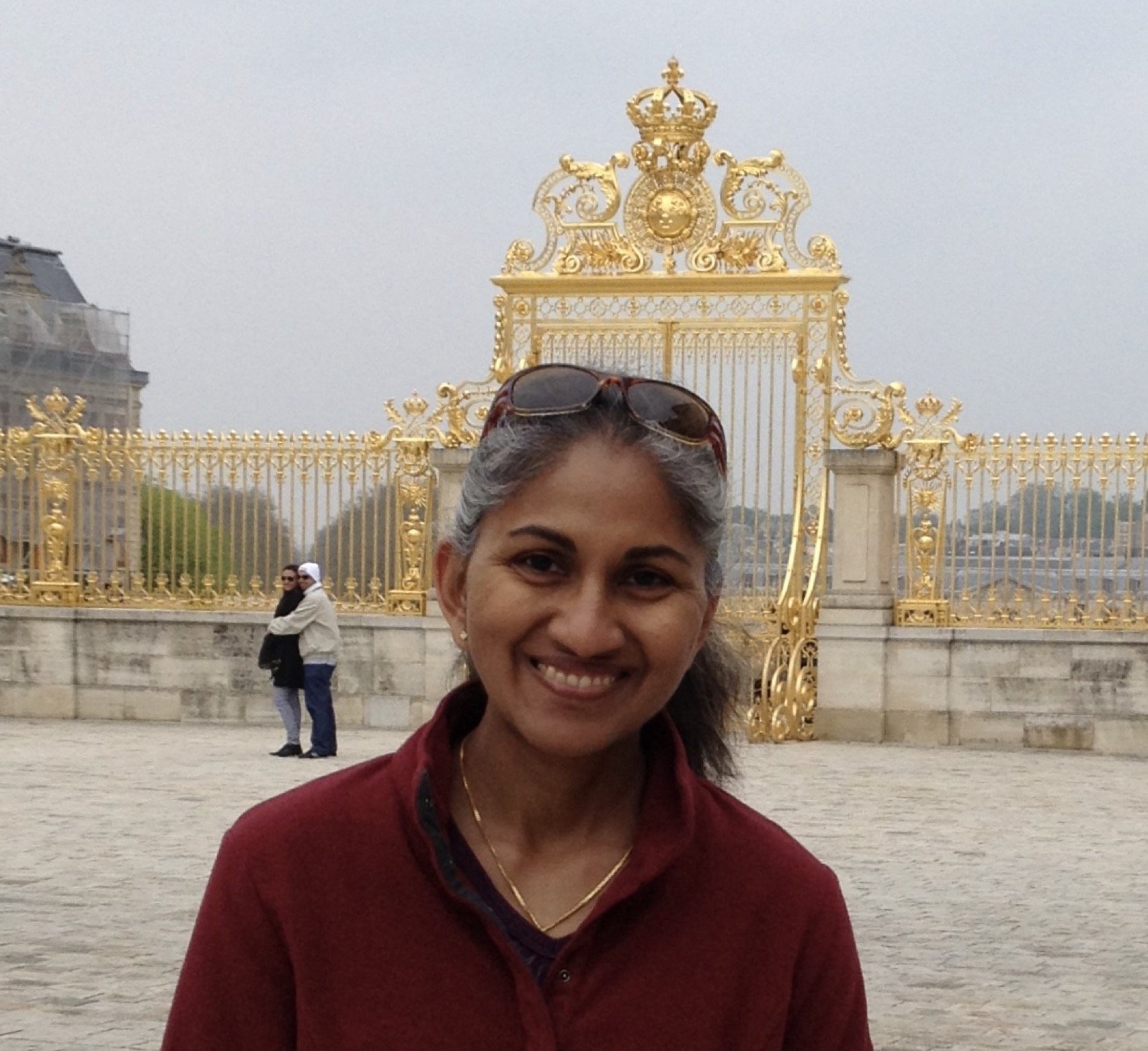
PACS June 23 Meeting
Virtual Meeting of the Princeton ACS Section
Thursday, June 23, 2022; 6:00 pm
“Skin - A Different Canvas. The Art and Chemistry of Tattoos, Inks, Removal and Potential Uses for Health”
Geeta Govindarajoo, Ph.D., Teaching Professor, Rutgers University
Abstract: Tattoos – adornment; a mechanism of personal expression; medical device? Let us explore the chemistry behind tattoo inks (temporary and permanent) along with science behind the process and risks of obtaining a tattoo. How much does skin mimic the properties of a linen or cotton canvas? Chemistry comes into play again in the removal process (ouch!) of tattoos. The potential of tattoos as medical devices and the impact of tattooing on the human immune response will also be discussed
Biography: Professor Geeta Govindarajoo is a Teaching Professor in the Department of Chemistry and Chemical Biology at Rutgers, The State University of New Jersey and has taught various chemistry courses for 22 years. During this time, she has sought to employ innovations in Chemistry Education while teaching. She recently originated and developed the “Chemistry of Art” course that is taught at Rutgers University after being inspired by an art forger’s autobiography to research the interplay of chemistry and art. She earned a B.S. in Chemistry and Biology, and then a Ph.D. in Organic Chemistry in 1998 from the University of California, Irvine.
Registration: Registration for the meeting is required. Prior to the meeting, all who have registered will be emailed the link to join the virtual platform. (Note: registration must be completed by 5PM, 6/23/22 to receive the link.)
PACS May 10 Meeting
Virtual Meeting of the Princeton ACS Section
Tuesday, May 10, 2022; 6:00 pm via GoToMeeting
An Evening of Hops and Beer Chemistry
“Creating Flavor for an Ever-Evolving Craft Beer Industry: Breeding and Production of New Hop Varieties”
Marshall Ligare, John I Haas, Inc.
and
“How the Mighty Hop Brings Flavor To Your Favorite Brew”
Kelly Carroll Jr and Dana Daneker Gasiorowski, International Flavors & Fragrances, Inc.
Abstracts:
Creating Flavor for an Ever-Evolving Craft Beer Industry - The known historical record of beer production dates back over 2,500 years. Although the use of hops in brewing seems ubiquitous to most beer consumers today, the modern IPA is a very new style in the history of beer. This shift in craft beer styles was driven by consumer preference and the availability of new hop varieties to create citrusy and fruity flavors. This presentation will cover the production of modern flavor / aroma hops from seed to beer, including modern industrial practices for breeding, growing, processing and chemical analysis.
The Mighty Hop - Many of us grab our favorite craft brew anticipating the reward of amazing aroma, great flavor, unique taste, and refreshment, few of us truly understand the drivers of these unique aromas and tastes. The art of brewing is constantly evolving to include interesting new varietals of Hops (Humulus lupulus) which drive significant and unique flavor profiles. Hops contain a complex blend of essential oil, terpenes, alpha and beta acids, flavonoids, lipids, polyphenols, minerals, protein, and cellulose, the building blocks taking the mighty Hop from a lovely Cone to a rainbow of flavor. These reactions are complex, involving thermal and enzymatic degradation with many flavor compounds being created through further isomerization, oxidation, esterification, and hydrolysis. We will be discussing some of our favorite and most flavorful hops derived molecules. Whether you prefer your brew to be bitter with high citrus character or more mellow and fruity, you will gain a deeper appreciation for the power of this beautiful natural product.
Biographies:
Marshall Ligare is currently a PhD Research Scientist with John I Haas, where he studies hops and beer chemistry for product development, agronomy and breeding of new hop varieties. He received his PhD in Physical and Analytical chemistry from UC Santa Barbara in 2015, where his graduate work investigated the structure-function relationships contributing to UV protection in DNA. After which, he completed a post-doc as a Research Associate at the Pacific Northwest National Laboratory, where he developed novel mass spectrometry instrumentation and methods of analysis for the Department of Energy for real-time monitoring of gold nanoparticle synthesis for green catalyst applications. His original interest in chemistry came from an enjoyment of aromas in natural products. He is also an avid homebrewer for over ten years prior to joining John I Haas Inc.
Kelly Carroll Jr. has a B.S. in Food Science from Rutgers University – Cook College. He is a Flavorist II at IFF, where he has been a part of the flavor industry for 11 years. He became a certified flavorist as a member of the Society of Flavor Chemists in 2017. Kelly works primarily on alcoholic beverages with a concentration in citrus tonalities. He is an avid beer drinker and loves to discover new brews. In his free time, he enjoys camping, gardening, star gazing, and golfing.
Dana Daneker Gasiorowski is a Principal Flavorist at IFF located in their Creative Labs in Dayton, NJ. Utilizing 1000’s of unique molecules, she creates flavors for a variety of beverages and foods. Dana has been working in the field of flavor science for over two decades, is a Certified member of the Society of Flavor Chemists and a long-time member of the American Chemical Society. She holds a BS in Biology from York College of Pennsylvania and an MS in Biotechnology from Johns Hopkins University. During her free time, Dana enjoys her family and the outdoors.
Registration: Registration for the meeting is required. A day prior to the meeting, all who have registered will be emailed the link to join the virtual platform. (Note: registration must be completed by 5PM, 5/10/22 to assure receiving the link.)
To register, please complete and submit the form below.:
Earth Day Eve
Join us on Earth Day Eve, Thursday, April 21st, 6:30 to 8:00 pm, when Princeton American Chemical Society (PACS) hosts an online live event in recognition of the 52nd International Earth Day to continue the conversation about sustainability of the quality of life in the face of climate change.
The virtual event will engage and inform our members, students ranging from high school to university and other interested local community members. The agenda includes a keynote delivered by Professor Maurie Cohen, NJ Institute of Technology, who authored several books and other publications on sustainability and climate change. A group of pre-selected non-expert individuals who have considered these issues will present their thoughts and findings from their use of the policy simulations model, En-ROADS (Climate Interactive, MIT Management). That freely available online application gives individuals the chance to design scenarios to control and limit anthropogenic impacts on the environment, specifically global warming and climate change.
There is no fee to attend but registration is required.
Maurie J. Cohen is Professor of Sustainability Studies and Chair of the Department of Humanities and Social Sciences at the New Jersey Institute of Technology, Co-founder and Management Team Member of the Future Earth Knowledge-Action Network on Systems of Sustainable Consumption and Production, and Editor of the journal Sustainability: Science, Practice, and Policy.
PACS April 5 Meeting
Virtual Meeting of the Princeton ACS Section
Tuesday, April 5, 2022
6:00 pm via GoToMeeting
“California-Native Elderflowers: How the Volatile Profile Changes with Post-Harvest Processing”
Katie Uhl, PhD Candidate in Food Science, University of California, Davis
Abstract: While elderflower products are commonly seen on grocery store shelves, the subspecies native to the western United States, Sambucus nigra ssp. cerulea, has not been studied before. This study evaluated fresh and dry flowers from elder shrubs growing in northern California, as well as teas made with fresh and dry flowers for their volatile profile via headspace solid-phase microextraction (HS-SPME) gas chromatography mass spectrometry (GC/MS). When comparing the flowers of this subspecies of elder, there were some key differences between the flowers, including the presence of methyl eugenol in the California elderflowers. This compound has not been identified in studies on European (S. nigra ssp. nigra). In addition, the volatile profiles of the teas made with fresh and dry flowers were significantly different from the plain flowers, driven by the presence of short chain aldehydes. This is the first study to compare these four elderflower preparations, and the results highlight the potential of this subspecies of elderflower to be used to develop novel elderflower products that have unique organoleptic properties compared to other elderflower subspecies.
Biography: Katie Uhl is a PhD Candidate in Food Science at University of California, Davis under Dr. Alyson Mitchell. She also holds a bachelor’s in food science from The Ohio State University. Her research at UC Davis has been a part of a California Department of Food and Agriculture collaboration to understand the composition of the subspecies of elderberry native to the western United States, Sambucus nigra ssp. cerulea in order to increase the use of the berries and flowers in value-added foods. Through this project, she has gained a wide variety of analytical skills to study food components, and she hopes to use these skills as a food scientist
******************
“Comparative Analysis of a Variety of Chili Peppers including Synthesized Compounds and Sensory Evaluation”
Dr. Neil C. Da Costa, International Flavors & Fragrances, Inc.
Abstract: Chili peppers are increasingly in demand in modern culinary preparations for use in a variety of International dishes. In-depth volatiles analysis was conducted on several highly pungent chili peppers included habanero (capsicum chinense), green serrano and red chili (capsicum annuum), cumari (capsicum praetermissum) and red and green malagueta (capsicum frutescens) varieties. The main pungency imparting capsaicinoids have been reported. In addition, key to these volatile compositions are esters including the 4-methylpentyl analogues, ionones, macrocyclics, amides and trace sulfur molecules. Comparison of the compositional ratios of components plus synthesized molecules and their sensory evaluations, will be presented.
Biography: Neil received his PhD in organic and analytical chemistry from the University of Hertfordshire just outside London, England. He went on to work at Bush Boake Allen Ltd in London for seven years performing flavor and fragrance GC-MS analysis before being relocated by IFF to Union Beach, NJ in 2001. As a recognized expert in GC-MS, Neil has managed analytical research groups supporting the North American and global flavorists, perfumery research and high-tech quality control. Current work includes authenticity and raw materials analysis.
In addition, Neil has authored over 30 patents, papers and book chapters and presented his research at IFT, the American Chemical Society National meetings and several prestigious European flavor symposia. In 2012 he was Chair of the Agricultural & Food Chemistry Division of the American Chemical Society and organized their national meetings programs for Denver and San Diego.
His work interests include mass spectral research analysis linking volatiles, semi-volatiles and non-volatiles of foods, fragrances, natural products plus new molecule discovery for flavors and fragrances. His hobbies include, travel, gym, TV quizzes and meeting astronauts and cosmonauts.
.
Registration: Registration for the meeting is required. Prior to the meeting, all who have registered will receive the link to join the virtual platform.
To register, please complete the form below:
PACS March meeting
Virtual Meeting of the Princeton ACS Section
Thursday, March 10, 2022
6:00 pm via GoToMeeting
“Using Performance Testing to Understand the Benefits of Flavor Delivery Systems in Food Applications”
Carolyn Crosby, Research Investigator, Performance Insights
Adam Toth, Senior Manager, Delivery and Material Technology
International Flavors and Fragrance (IFF), Research & Development
Abstract: Flavor delivery systems can provide versatility and functionality that may not be available from liquid flavors in food applications. Delivery systems offer several benefits including protecting the flavor from harsh food manufacturing processes, improved flavor shelf stability, cost-in use savings, and overcoming hydrophilicity/hydrophobicity issues in food matrices. Performance testing encompasses multiple factors including analytical chemistry, food application technology, physical chemistry, and sensory science to assess if the delivery system is achieving the targeted functionality. The data can provide specific insights about flavor or matrix ingredients in the current experiment as well as be used to build databases to predict future flavor/delivery system behavior in future food applications.
Biographies:
Carolyn Crosby has been with IFF Research & Development for 22 years. She specializes in the performance, release, and modeling of flavors and flavor molecules in flavor delivery systems and food applications. Carolyn uses a wide range of analytical techniques such as headspace, extraction, particle size analysis and rheology to characterize flavor/matrix interactions in delivery systems and foods during preparation, storage, and consumption. She builds flavor performance models using correlations between the analytical data and consumer sensory information. Carolyn has a B.S. degree in Chemistry from the University of Delaware. She previously worked at FMC Corporation in the Phosphorus Chemicals Division, specializing in food phosphate applications.
Adam Toth has been with IFF Research & Development for 22 years. He specializes in the development, characterization and performance of flavor delivery systems for use in various food applications with expertise in extrusion, homogenization, spray drying, and spray chilling processes. Adam currently leads a research team in creating novel encapsulation systems utilizing principles of food chemistry, colloid chemistry, physical chemistry, polymer chemistry, and controlled release to meet the desired functionality in specific food applications. Adam has B.S. and M.S. degrees in Food Science from Rutgers University. Prior to his employment at IFF R&D, he interned for 4 years at the Nourish (Flavor) Division of IFF Creative & Applications while completing his undergraduate studies.
Registration: Registration for the meeting is required. Prior to the meeting, all who have registered will receive the link and information on how to join the virtual platform.
To register, please complete the form below:
PACS February Meeting
Professor Paul Falkowski
Rutgers University, Department of Earth and Planetary Sciences and Marine and Coastal Sciences
Virtual Meeting of the Princeton ACS Section
Wednesday, February 9, 2022
6:00 pm via Zoom
“Searching for the LEGOS of Life”
Professor Paul Falkowski
Rutgers University, Department of Earth and Planetary Sciences and Marine and Coastal Sciences
Abstract: The black hole of chemistry is the origin of life. Over the past two centuries, many chemists have attempted to understand how molecules can both become replicative and catalytic, but we have, thus far failed to understand autocatalysis that can lead to a system of reactions far from thermodynamic equilibrium. In this talk I will discuss the distance between applied and theoretical chemistry, and most importantly, what questions each of us asked, and have answered, when we were six years old.
Biography: Paul G. Falkowski is the Bennett Smith Professor in Business and Natural Resources; Distinguished Professor, Department of Earth and Planetary Sciences and Founding Director of Rutgers Energy Institute, Rutgers The State University of New Jersey.
Professor Paul Falkowski’s scientific interests include evolution of the Earth systems, paleoecology, photosynthesis, biophysics, biogeochemical cycles, and symbiosis. Professor Falkowski earned his B.S. and M.Sc. degrees from the City College of the City University of New York and his Ph.D. from the University of British Columbia. After a post-doctoral fellowship at the University of Rhode Island, he joined Brookhaven National Laboratory in 1976 as a scientist in the newly formed Oceanographic Sciences Division. He served as head of the division from 1986 to 1991 and deputy chair in the Department of Applied Science from 1991-1995, responsible for the development and oversight of all environmental science programs. In 1996, he was appointed as the Cecil and Ida Green Distinguished Professor at the University of British Columbia. He moved to Rutgers University in 1998.
He received a John Simon Guggenheim Fellowship in 1992; the Huntsman Medal in 1998; the Hutchinson Prize in 2000; the Vernadsky medal from the European Geosciences Union in 2007; the Ecology Institute Prize in 2010; the Albert 1st Medal in 2011; and the Tyler Prize for Environmental Achievement in 2018. In 2001, he was elected a Fellow of the American Geophysical Union; in 2002, he was elected to the American Academy of Arts and Sciences; in 2007, he was elected to the United States National Academy of Sciences; in 2008, he was elected as a Fellow of the American Academy of Microbiology; in 2016, he was elected as section chair for Environmental Sciences and Ecology in the United States National Academy of Sciences.
Registration: Registration for the meeting is required. Prior to the meeting, all who have registered will receive information on how to join the virtual platform.
Please register below:
Synthesis on Scale: Process Chemistry in the Pharmaceutical Industry
The Princeton Section of the American Chemical Society
presents the third annual symposium
Synthesis on Scale:
Process Chemistry in the Pharmaceutical Industry
Friday, January 14th, 2022
10:00 AM – 3:45 PM EST
Remote via Zoom
- Registration is now open! -
Program
10:00 AM - 10:10 AM Welcome and opening remarks, Prof. Spencer Knapp, Rutgers University
Symposium Organizer, ACS Princeton Section
10:10 AM - 11:10 AM Fabrice Gallou, Novartis
“Sustainability as a Driver for Innovation;” introduced by Jennifer Albaneze-Walker, Bristol-Myers Squibb
11:10 AM - 12:10 AM Megan Smyth, Almac
“Utilising Technology to Deliver Superior Solutions – A CDMO’s Perspective;” introduced by Scott Wharry, Almac
12:10 PM - 12:40 PM Discussion
(Fabrice Gallou, Jennifer Albaneze-Walker, Megan Smyth and Scott Wharry)
(Break)
1:10 PM - 2:10 PM Candice Joe, Bristol-Myers Squibb
“Development of a Scalable Negishi Cross Coupling Process;” introduced by Eric Simmons, Bristol-Myers Squibb
2:10 PM - 3:10 PM Matthew Beaver, Amgen
“The Role of Continuous Manufacturing to Advance Amgen’s Synthetic Portfoli;” introduced by Oliver Thiel, Amgen
3:10 PM - 3:40 PM Discussion
(Candice Joe, Eric Simmons Matthew Beaver and Oliver Thiel)
3:40 PM - 3:45 PM Closing remarks – Prof. Spencer Knapp
Registration is now open!
The Symposium is free however registration is required. A couple of days prior to the event, a link to join the Zoom meeting will be sent to all who have registered. To register, please complete the form below:
Speaker Abstracts & Biographies
Fabrice Gallou, Novartis Distinguished Scientist – Director, Science & Technology, Chemical Development, Novartis
Title: Sustainability as a driver for innovation
Abstract: During our evaluation of the potential of surfactant technology, we have identified a variety of straightforward and highly advantageous transformations and applied them successfully on-scale on various chemo and biocatalytic transformations. Implementation of the technology typically results in significant benefits across our entire portfolio, not just from an environmental standpoint, but also from an economic and productivity perspective. To name a few: reduction of organic solvent consumption, water use and cycle time, milder reaction conditions, and improved yields and selectivities, all of which contribute to better process performance and lower manufacturing costs.
Modern non-ionic surfactants for micellar catalysis in water: These surfactant mediated reactions can be up-scaled in the already existing multi-purpose facilities of pharmaceutical or chemical organizations, by using, instead of traditional and undesirable organic solvents, a catalytic amount of a combination of a non-ionic designer surfactant (e.g., TPGS-750-M, PS-750-M) in water, and a well-chosen organic co-solvent. We can now start gaining insight onto the physical phenomena involved and the role of the various components of the system, and utilize this know-how to design even better catalytic systems.
Biography: Fabrice Gallou is responsible for global scientific activities in the Chemical Development group at Novartis, Switzerland, overseeing development and implementation of practical and economical chemical processes for large scale production of small molecules APIs and other new modalities. He has been leading chemistry efforts for process research and process development activities. His research interests reside in the research and development of sustainable synthetic methodologies intended for large scale implementation. Prior to joining Novartis in 2006, Fabrice earned a Ph.D. under the guidance of Prof. Leo A. Paquette at the Ohio State University, where his research focused on the synthesis of various natural products. In 2001, he joined Boehring-Ingelheim, USA, as a process chemist, where he was involved in route design and early phase supply.
**********************************************
Megan Smyth, Technical Leader – Custom and Flow Chemistry, Department of Technology, Almac Sciences, NI.
Title: Utilising Technology to Deliver Superior Solutions – a CDMO’s Perspective
Abstract: The adoption of technologies such as biocatalysis and continuous flow chemistry within the chemical industry continues to increase with the number of commercially relevant examples on the rise.1 This presentation will highlight some of Almac’s technology expertise for overcoming processing challenges. Considering large scale bioprocessing, there can be productivity limitations from mass transfer in heterogeneous systems, enzyme stability challenges, deactivation, or substrate/product inhibition; technology solutions implemented in-house are utilised to overcome the hurdles. More recently, Almac Sciences have been investing to build continuous flow capabilities. The major advantage of flow chemistry approaches is improved access to reaction classes that are typically more challenging to scale in batch. Translation of chemical processes from batch to flow is often viewed as an extremely simple concept; however, development of a flow process can be complex, with several challenges to consider that may not be traditionally faced in batch. Presentation of a case study will highlight the strategy of a CDMO for entry into the continuous flow landscape and the synergies attainable within Almac’s Technology platform between biocatalysis and flow chemistry.
1 A Perspective on Continuous Flow Chemistry in the Pharmaceutical Industry. Marcus Baumann, Thomas S. Moody, Megan Smyth, and Scott Wharry. Org. Process Res. Dev. 2020, 24, 10, 1802–1813.
Biography: Megan Smyth is a Technical Leader within the Custom and Flow ChemistryTeam at Almac Sciences. She graduated from The Queen’s University of Belfast with a 1stClass MSci (Hons) in Chemistry in 2012 before returning to gain a Ph.D. in 2016. Megan is responsible for the development of flow capabilities and delivery of projects for customers. She has additional experience including bioprocessing, technology transfer and process scale-up. Megan is currently studying for an MBA at the University of Aberdeen.
**********************************************
Candice L. Joe, Principal Scientist – Chemical Process Development, Technologies Group, Bristol Myers Squibb
Title: Development of a Scalable Negishi Cross Coupling Process
Abstract: 2-Chloro-5-(1-(tetrahydro-2H-pyran-2-yl)-1H-pyrazol-5-yl)aniline is a crucial intermediate in the synthesis of the immuno-oncology asset BMS-986299. The key C-C bond is forged via a palladium-catalyzed Negishi cross coupling between an in situ generated heteroaryl zinc reagent and an aryl bromide. Built upon developments from the first-generation process, which delivered the desired product in multi-kilogram quantities, an optimized procedure will be described that streamlines the workup and isolation. The high-yielding final process offers improved metals remediation, a reduction in unit operations, and a decrease in process mass intensity (PMI) compared to the initial process.
Biography: Candice Joe joined the Chemical Process Development department at Bristol Myers Squibb in 2016. As a member of the catalysis group, she is responsible for leveraging high-throughput experimentation (HTE) and automation to investigate catalytic transformations across the BMS portfolio and to ensure they are scaled up in a robust manner. Candice currently serves as the co-lead for the high-pressure lab at the New Brunswick, NJ site, and is involved in various academic collaborations.
Prior to her time at BMS, Candice received her Bachelor of Science degree in Chemistry from Haverford College. In 2014, she earned her doctorate under the guidance of Kian Tan at Boston College, where she designed and synthesized catalytic directing groups for asymmetric hydroformylation. She conducted her post-doctoral research in the laboratory of Abigail Doyle at Princeton University, where she studied the metallaphotoredox cross coupling of anhydrides and thioesters at C(sp3)-H bonds.
**********************************************
Matthew G. Beaver, Principal Scientist – Pivotal & Commercial Synthetics, Amgen
Title: The Role of Continuous Manufacturing to Advance Amgen’s Synthetic Portfolio
Abstract: Continuous manufacturing (CM) has emerged as a compelling alternative to traditional batch processing within the pharmaceutical industry. Two themes drive Amgen’s approach to the development and implementation of CM across the synthetic portfolio: 1) ‘flow chemistry’ as an enabling technology required to overcome the physical inefficiencies of large-scale batch manufacture (e.g., mixing, heat-transfer, light penetration, etc.), and 2) integrated end-to-end processing to deliver a significantly reduced manufacturing footprint through a next-gen hybrid design. Presented herein are case studies where the implementation of continuous manufacturing significantly improved, or simply made possible, the production-scale synthesis of chemical matter across Amgen’s synthetic portfolio.
Biography: Matthew G. Beaver joined Amgen’s Process Development organization in 2012 to deliver improved synthetic processes and advanced technologies for small-molecule programs that span from pre-clinical to commercial. Matt is currently a Principal Scientist within the Pivotal & Commercial Synthetics group, where he leads efforts in process intensification, including development and implementation of continuous manufacturing.
Prior to joining Amgen, Matt earned a Ph.D. under the guidance of Prof. Keith A. Woerpel at the University of California, Irvine, where his research focused on the elucidation of factors that govern stereoselectivity in the reactions of oxocarbenium ion intermediates. In 2010, he joined Prof. Timothy F. Jamison’s group (MIT) as an NIH postdoctoral fellow, where he made contributions to two distinct areas of research: the development of nickel-catalyzed C–C bond forming reactions, and natural product synthesis utilizing endo-selective epoxide-opening cascades.
Stephen L. Buchwald, MIT, January 7, 2022
"I am always amazed at the creativity of process chemists in tackling the synthesis of even the most complicated molecules, and deriving efficient, practical methods for their preparation. The added necessity of having to worry about cost, supply chain issues, scale up issues and safety issues that only crop up on scale further complicates their task. Heroically, they always rise to the occasion, delivering kilograms and more of product, and paving the way for commercialization. They are to be applauded for their efforts."
SOS Symposium Organizing Committee
Spencer Knapp, Rutgers University
Mukund Chorghade, Princeton ACS Section
David Carrick, Princeton ACS Section
Louise Lawter, Princeton ACS Section
Lisa Veliath, Princeton ACS Section
Jennifer Albaneze-Walker, Bristol-Myers Squibb
Mark Dresel, IT Support
Thank you to our sponsors
Chemical Consultants Network
Chemical Consultants Network ZOOM MEETING
NOVEMBER 10, 2021
CONSULTING AND THE LAW
Wendy F. Bleczinski, Esquire – Princeton University
DATE & TIME: Wednesday, November 10, 2021 at 6:30 pm
Location: Online via Zoom! (Registration required, see below)
Abstract: Are you striking out on our own as a consultant for the first time and wondering “where do I start?” or have been working as a consultant for years questioning whether you are doing everything you can to minimize liability and taxes? Most people I meet in this position have vast expertise in very specialized areas and are sought out as consultants by companies, both large and small, but haven’t had to run a business before. I will walk you through some of the basics needed to get started as a consultant, including which entity structure may work best for you and, especially if there are other collaborators or employees involved, what considerations and protections need to be put in place to make sure everything runs smoothly and efficiently. I will also take time to review the current tax laws, how to take advantage of the tax deductions available to you, as well as review some common pitfalls to avoid.
Biography: Wendy F. Bleczinski, Esquire, is a tax, estate and business attorney in Pennsylvania. Wendy has worked with individuals and businesses to find innovative tax and business planning solutions for more than 25 years. She earned her B.S. in Biology at Bucknell University and worked as an environmental scientist at SmithKline Beecham and at the University of Pennsylvania. While working at Penn, Wendy attended law school at Widener University School of Law where she headed the Health Law Society and served as the Internal Managing Editor of the Delaware Journal of Corporate Law. Wendy has been named a top tax attorney in the region for several years in Main Line Today and SuburbanLife Magazines.
Click here to register to attend the event. This session is FREE.
PACS October 26 Meeting
Virtual Meeting of the Princeton ACS Section
Tuesday, October 26, 2021
6:30pm (via GoToMeeting)
“Reduced Carbon Sequestration Technology (ReCaST): A New Approach to Industrially Useful Organics from CO2”
Professor Andrew Bocarsly, Department of Chemistry, Princeton University
Abstract - In recent years, a number of strategies have been put forward to both reduce the emission of CO2 into the environment and utilize what has traditionally been considered “waste” CO2 for the development of new materials, chemical feedstocks, and fuels. To this end, electrochemical reduction of aqueous CO2 to organics appears attractive. However, this chemistry has been severally limited by a lack of efficient electrocatalysts. This deficiency has meant that one often cannot produce the compounds of interest. In cases where a path to the target compound was available, the lack of appropriate catalysts meant that excessive electrode potentials needed to be employed and that water could not be employed as the electrolyte. These two parameters dramatically impact the cost of electrochemical CO2 conversion.
To date, the only material reported to be an efficient electrode for CO2 reduction is copper metal. This presentation will focus on work in our labs at Princeton University that has now revealed that binary intermetallic compounds composed of a first row transition metal and a post transition metal such as aluminum or gallium provide a new source of heterogeneous electrocatalysts for the reduction of CO2 to form a variety of C1 and C2+ organic products.
Biography - Andrew Bocarsly received his BS degree jointly in chemistry and physics from UCLA in 1976, and his Ph.D. in chemistry from M.I.T. in 1980. He has been a member of the Princeton University, Chemistry Department faculty for thirty-nine years and holds affiliations with Princeton’s Materials Institute, Princeton’s Environmental Institute and the Andlinger Center for Energy and the Environment. Professor Bocarsly has published over 225 papers and co-authored over a dozen patents. Research in his laboratory is focused on electrochemistry and photoelectrochemistry for the conversion of carbon dioxide to fuels and feedstocks; new materials for electrochemistry and molecular multielectron photoinduced charge transfer processes.
Professor Bocarsly serves as a consultant to various alternate energy companies. He co-founded Liquid Light Inc., a company formed to commercialize the formation of organic commodity chemicals from CO2. Professor Bocarsly has received an Alfred P. Sloan Fellowship, the Sigma Xi (Princeton Section) Science Educator Award, and the American Chemical Society-Exxon Solid State Chemistry award. He has served on the Advisory Board for the Journal of Physical Chemistry Letters, has edited a volume for Structure and Bonding in the area of fuel cells and batteries, and served as the electrochemistry editor for Methods in Materials Research. He currently sits on the editorial advisory board of Journal of CO2 Utilization, and the international advisory board of the International Conference on Carbon Dioxide Utilization. He is a fellow of the American Scientific Affilation.
Registration - Access to the meeting is free but registration for the event is required. Prior to the meeting, a link to join the virtual meeting will be sent to all those who register. For questions contact louise.lawter@gmail.com.
NCW Virtual Activities Event
Virtual Princeton ACS Section NCW Activities Event!
Join the Princeton Section of the American Chemical Society (PACS) for this free community event for National Chemistry Week (NCW) and celebrate the importance of chemistry in everyday life! Learn about this year’s theme, Fast or Slow...Chemistry Makes It Go, with exciting virtual hands-on activities for ages 5 and up.
When: Saturday, October 23
When: 1:00 PM to 3:00 PM
Where: Virtual Event. Registration is required. Prior to the event, the link to the virtual event will be sent to all who have registered
Questions about the event, please contact the NCW Coordinator at bhattacharya@princeton.edu.
We hope to see you there!
To register, please complete and submit the form below:
PACS October 5 Meeting
Virtual Meeting of the Princeton ACS Section
Tuesday, October 5, 2021, 6:30pm
“qPCR and it’s World of Applications”
Geoff Jackson, Application Scientist, Thermo Fisher Scientific
Abstract - What is qPCR (quantitative real-time polymerase chain reaction), and how does it work? What is the chemistry behind this powerful technique? This presentation will discuss the chemistry and biochemistry that makes it work. This seminar reviews associated applications when working with DNA, RNA, and protein analysis. DNA applications include mutation detection, single nucleotide polymorphisms, and high resolution melt. RNA applications reviewed are gene expression and small RNA. The final section of the talk examines protein expression and digital PCR.
Biography - Geoff Jackson is a Regional Field Application Scientist for Thermo Fisher Scientific with over 30 years of experience in molecular biology and pathogen detection.
Prior to this role, Geoff was a lead biologist and program manager at Centers of Disease Control and Prevention (CDC) for almost 10 years. He is fluent in many scientific and molecular biology techniques that include but are not limited to basic science benchwork; pathogen detection assay development; bioterrorism response and prevention; program management; and emergency management.
Registration: Access to the meeting is free but registration for the event is required. A link to join the virtual meeting will be sent to all those who register prior to the meeting. For questions contact louise.lawter@gmail.com
PACS September Meeting
This meeting has been cancelled. Our next meeting that will take place on Tuesday, October 5.

April 2021 Meeting
Talk title:
“Comparison of analytical GC-MS techniques for the determination of volatile and semi-volatile compounds in raw and roasted Macadamia nuts (Macadamia integrifolia).
Click on image for more info!

Synthesis on Scale 2021
The Princeton Section of the American Chemical Society
presents the third annual symposium
Synthesis on Scale:
Process Chemistry in the Pharmaceutical Industry
Friday, January 15th, 2021
10:00 AM – 3:45 PM EST
Remote via Zoom Program
10:00 – 10:10 AM
Welcome and opening remarks
Prof. Spencer Knapp, Rutgers University Symposium Organizer and 2020 Chair, ACS Princeton Section
10:10 – 11:10 AM
“Peroxides in Process Research: Safety through Understanding”
Greg Beutner, Bristol-Myers Squibb (Introduced by Antonio Ramirez, Bristol-Myers Squibb)
11:10 AM – 12:10
“The Development of a Biocatalytic Route to Daurismo”
Angela Puchlopek-Dermenci, Pfizer (Introduced by Pam Tadross, Merck)
12:10 PM – 12:40
Discussion (Greg, Angela, Antonio, and Pam)
— break —
1:10 – 2:10 PM
”Development of Remdesivir for Ebola”
Lars Heumann, Gilead (Introduced by Matt Kraft, Gilead)
2:10 – 3:10 PM
“Commercialization of the Ceftolozane Generation 2 Manufacturing Process”
Pam Tadross, Merck (Introduced by Angela Puchlopek-Dermenci, Pfizer)
3:10 – 3:40 PM
Discussion (Lars, Pam, Matt, and Angela)
3:40 – 3:45 PM
Closing remarks
Prof. Spencer Knapp
Symposium Organizing Committee
Spencer Knapp, Princeton ACS Section
Mukund Chorghade Princeton ACS Section
David Carrick Princeton ACS Section
Louise Lawter Princeton ACS Section
Jennifer Albaneze-Walker
Pam Tadross BMS Merck
Mark Dresel IT Support
Symposium Sponsors
Joseph Martino
Ruben Savizky
Cecilia Marzabadi
Christie McInnis
Rita K. Upmacis
Mirlanda Biba
The Future of Process Chemistry
“New bond forming processes and novel strategies continue to be discovered at an ever increasing rate due to the ingenuity of chemists worldwide. Process intensification concepts, improvements in process analytical technologies (PAT), high throughput methods, and continuous processing combined with machine learning and artificial intelligence (AI) techniques are creating a new vision and new opportunities for the future.” “The industry is also leading the field in terms of improved sustainability and in the development of the next generation of the green agenda. These are, indeed, exciting times for the process chemist.”
Prof. Steve Ley Cambridge, UK 1 January 2021 (excerpted)



